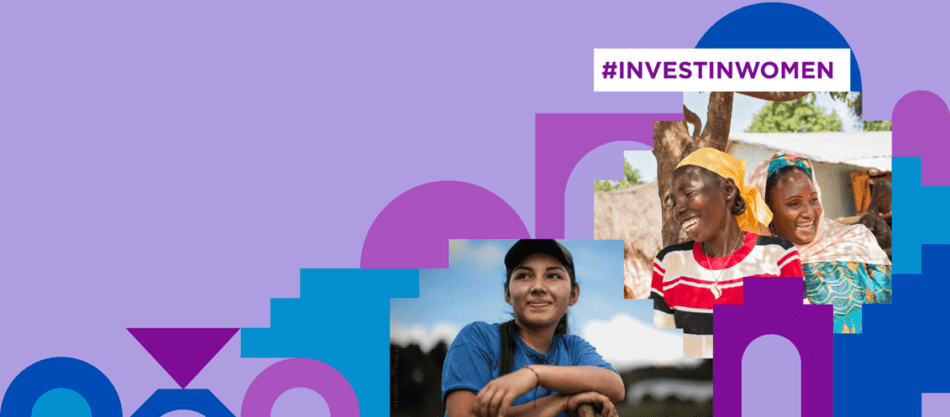ECLAC Caribbean Encourages Regional Leaders to Use Resources for Progress on Gender Equality for Women and Girls


08 March 2024
The international community has committed to making every effort to achieve the Sustainable Development Goals by 2030, yet we remain disturbingly behind when it comes to meeting the targets for achievement of gender equality and empowering all women and girls. The SDG indicators measuring progress on this goal signal that, globally, we are only on track to reach 15.4 per cent of the targets set for gender equality. Even more worrisome is the fact that 61.5 per cent of the gender equality targets are far or very far off track.
In the Caribbean, the situation is very similar to the global outlook. Women in the Caribbean face several challenges disproportionately when compared to men. The 2018 Report, Turning Promises Into Action: Gender Equality in the 2030 Agenda for Sustainable Development, states that significant challenges lie ahead for women in Latin America and the Caribbean to experience gender equality. It reported that 21 per cent of women and girls aged 15 to 49 had experienced physical and/or sexual violence by an intimate partner in the previous 12 months.
Director of ECLAC Caribbean Diane Quarless says, “Women’s economic and development empowerment must become a national priority for all Caribbean governments. We must continue to work on and use national statistics disaggregated by gender. Women in the region still suffer high rates of intimate partner violence. In five countries around the region, 46 per cent of our women have faced some form of abuse committed by their partners.”

Small Island Developing States (SIDS) disproportionately face the impacts of climate change. The 2018 Gender Equality Report noted that women and children are 14 times more likely than men to die during disasters. Director Quarless says, “women in the Caribbean suffer disproportionately after the more frequent hurricanes and extreme weather events that we face here in the Caribbean. Women face greater job insecurity, especially in the services sector, as seen during the COVID pandemic. Women face the heavier burden of unpaid work in and around the home.”
Director Quarless is encouraging regional leaders, policy makers and technocrats to make full use of the assistance provided by the UN System. “At ECLAC Caribbean, we seek to support the region in its efforts to achieve gender equality and provide the statistics and analysis to know where we’re falling short. In sustainable development, SIDS have championed the rights of those most vulnerable to climate change and championed climate action thought. We must lead the way in accelerating progress by investing in sustainable development for women and girls.”
Director Quarless says “International days are moments for reflection, analysis, education and mobilization. On this day, we reflect on women’s challenge, embrace their resilience, and celebrate their ingenuity, determination and achievement. We stand on the broad, fearless shoulders of the pioneering women who have blazed the trail before us.”
More about ECLAC Caribbean
The mission of the Economic Commission for Latin America and the Caribbean (ECLAC) subregional headquarters for the Caribbean, is to deepen the understanding of the development challenges facing the Caribbean, and to contribute to solutions by conducting research and analysis and providing sound policy advice and technical assistance to Caribbean governments, focused on growth with equity and recognition of the subregion’s vulnerability.





